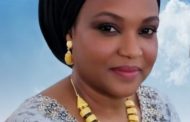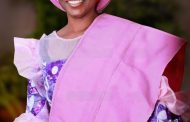The civil society in Nigeria is, like the country itself, a study in diversity. It doesn’t matter if one takes diversity here in terms of the gamut of activities covered or the approach to work or the peopling, diversity is it.
There are those perpetually on television lost in punditry just as some others specialise in slamming the authorities with court actions while yet some others are endlessly on advocacy and campaigning. It is a perfect cocktail in which one finds whatever it is one is out looking for.
In all cases, they satisfy the Gramsciam analogy of the civil society as a space for naturalising and de-naturalising hegemonic constructs and associated practices.

All the intellectuals, activists and gender warriors at a Rosa Luxemburg Foundation event in Abuja in 2022
The de-naturalising dimension is what would put the Angela Odahs in Nigerian civil society on the spotlight. The Rosa Luxembourg Foundation for whose Dakar based West African office she works in Nigeria does a lot of partnership and empowerment activities but its greater strength would appear to be in knowledge production and circulation, stretching from activities in academic spaces such as universities to funding conversations on unequal power relations in the domain of gender down to touchy issue of the nationality question. Above all, it is into using popular culture outreach to galvanise, obviously based on belief in narrativisation as a strategy of power, the power of voice and representation for those who are invisibilised by an insensitive social order. Prof Sophie Harman, Queen Mary University of London’s expert on African in International Relations has shown the way on how this strategy works with her Pili documentary and its outcomes.
In that sense, the Luxemburg Foundation has someone in a leadership position with the appropriate grooming, especially of the defunct Women in Nigeria, (WIN), where Angela was a leading member for years.
Angela is a good ‘girl’ if we start from Angela who was, indeed, a girl rather than from Angela at 50, surrounded by boys each of whom is taller than any of the parents. It takes few newly married young women to tolerate the atmosphere that welcomed her to her matrimonial home in Lagos – a house filled with permanently debating comrades, some of whom it was doubtful if they had ever courted, much less kissed a woman. It wasn’t that comrades were not the best in terms of basic honesty and public spiritedness. It was and is that certain things didn’t strike them as essential. The radical moment was on their mind and nothing else mattered, in those days. The group self-clarification process could get on the nerves.
In fact, it got to a point one night that John Odah’s landlord had to quit a detachment of debating activists. He thought they were fighting because voices were hard. John was not in town that night. The man who could not take it any longer took the unusual step of coming up to ask what was happening. The late Chima Ubani challenged him. He said he would deal with Chima. Chima asked him how? He said in case Chima didn’t know, he was a soldier in the Biafran war. Chima said something like, no wonder we lost the war. That infuriated him the more and the debating team just had to shift to Chima’s house nearby or risk a major confrontation. Today, that sort of debate is an anathema. The change in orientation and mood have made such vanguardist attitude equal to the ‘crime’ of being too aggressive, disrespectful of elders, lacking cultivation or one such regime of truth. To think of such a massive shift in attitude in one generation of activists is inviting of reflections. Perhaps, it is not surprising that the country is what it is today. The point being illustrated is how any young, newly married woman who took all these comrades in those days speaks to a valuable quality. Angela did that on high score.
It is not surprising she went on to be the National Coordinator of the Transition Monitoring Group, (TMG) which is the forerunner of what we now know as the Civil Society Situation Room on elections. As everyone knows, heading the TMG is managing a diverse (and rancorous) coalition of about 180 civil society organizations on election observation and monitoring. The TMG in her time published “Do the Votes Count?” a seminal report on the massive rigging that the political elite perpetuated during the 2003 General elections.
Someone has hinted that Angela is also a writer. Intervention would not wish to jeopardise guarantee of quality Okoho soup when next it visits the Angela and John Odahs by challenging this claim. Otherwise, it has yet to see any writings from Angela except if she wrote love poems for John Odah which must have remained a husband and wife stuff. But Intervention would not be surprised if that is her next additional turf.
For these and others straight scores, why won’t we then wish Angela another 50 years?




























